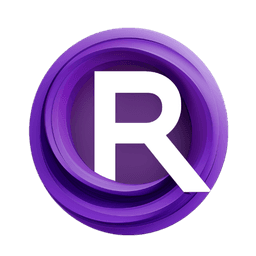ComfyUI Extension: Eden.art LoRa Trainer
sd-lora-trainer
aiXander (Account age: 557 days) Nodes
View all nodes(1) Latest Updated
2025-02-24 Github Stars
0.05K
How to Install Eden.art LoRa Trainer
Install this extension via the ComfyUI Manager by searching for Eden.art LoRa Trainer- 1. Click the Manager button in the main menu
- 2. Select Custom Nodes Manager button
- 3. Enter Eden.art LoRa Trainer in the search bar
Visit ComfyUI Online for ready-to-use ComfyUI environment
- Free trial available
- 16GB VRAM to 80GB VRAM GPU machines
- 400+ preloaded models/nodes
- Freedom to upload custom models/nodes
- 200+ ready-to-run workflows
- 100% private workspace with up to 200GB storage
- Dedicated Support
Eden.art LoRa Trainer Description
Eden.art LoRa Trainer is a highly efficient and optimized tool for training SDXL and SD15 models, maintained by Eden.art. It offers rapid performance and fine-tuned capabilities for superior model training.
Eden.art LoRa Trainer Introduction
The sd-lora-trainer is a powerful and optimized tool developed by the Eden team for training LoRa (Low-Rank Adaptation) modules on top of Stable Diffusion models. This extension is designed to help AI artists and enthusiasts fine-tune their models to achieve specific artistic styles, character faces, or objects. Whether you are looking to refine the aesthetic style of your images or train a model to recognize and generate specific objects or faces, sd-lora-trainer provides a streamlined and efficient solution.
The extension can be used in various ways, including as a hosted service on the Eden website, through Replicate, as a ComfyUI node, or as a standalone Python script. This flexibility ensures that you can integrate it into your workflow seamlessly, regardless of your technical setup.
How Eden.art LoRa Trainer Works
At its core, sd-lora-trainer leverages the power of Stable Diffusion models to fine-tune and train LoRa modules. LoRa modules are specialized components that can be added to existing models to enhance their capabilities without the need for extensive retraining. Think of them as "plug-ins" that can be trained to recognize and generate specific styles, faces, or objects.
The training process involves feeding the model a set of images and corresponding prompts. The model then learns to associate the visual features in the images with the prompts, allowing it to generate new images that match the desired style or content. The extension uses a single training script and loss module that works for both SDv15 and SDXL versions of Stable Diffusion, making it versatile and easy to use.
Eden.art LoRa Trainer Features
Training Modes
The sd-lora-trainer supports three default training modes:
- Style: This mode is used for learning the aesthetic style of a collection of images. For example, you can train the model to generate images in the style of a particular artist or art movement.
- Face: This mode is designed for learning specific faces, whether they are human or character faces. It is particularly useful for creating personalized avatars or character designs.
- Object: This mode focuses on learning specific objects or things featured in the training images. It can be used to train the model to recognize and generate specific items, such as cars, animals, or household objects.
Customization
The extension allows for extensive customization through its configuration files. You can adjust various parameters such as learning rate, batch size, and training duration to suit your specific needs. Additionally, the extension supports the use of an OpenAI API key to enhance prompt generation, especially for 'face' and 'object' modes.
Compatibility
The outputs of the sd-lora-trainer are fully compatible with popular tools like ComfyUI and AUTO1111. This means you can easily export your trained models and use them in other applications without any compatibility issues. Detailed documentation on exporting LoRa modules can be found here.
Eden.art LoRa Trainer Models
The sd-lora-trainer supports different models based on the version of Stable Diffusion you are using:
- SDv15: This version is suitable for general-purpose image generation and fine-tuning.
- SDXL: This version offers enhanced capabilities and is particularly effective for more complex and detailed image generation tasks. Each model can be trained using the same script and loss module, ensuring a consistent and straightforward training process.
Troubleshooting Eden.art LoRa Trainer
Common Issues and Solutions
- Slow Training Speed: If you notice that training is significantly slower when using the ComfyUI node compared to running the script directly, consider running the
main.pyscript as a standalone Python job. - Textual Inversion Issues: If you encounter problems with pure textual inversion for SD15, note that this feature works better with SDXL. Adjust your training approach accordingly.
- Aspect Ratio Bucketing: If you experience issues with aspect ratio bucketing in the dataloader, refer to the sd-scripts repository for potential fixes and updates.
Frequently Asked Questions
-
How do I set up the OpenAI API key? Create a
.envfile in the root directory of the repository and add a single line:OPENAI_API_KEY=your_key_string. This will enable enhanced prompt generation. -
Can I use the trainer without an OpenAI API key? Yes, the trainer will work without the API key, but the results may be better with it, especially for 'face' and 'object' modes.
Learn More about Eden.art LoRa Trainer
For more detailed guides and documentation, visit the Eden documentation. You can also explore example workflows and additional resources in the /ComfyUI_workflows directory.
If you have any questions or need further assistance, consider joining the community forums or reaching out to other users who might have faced similar challenges. The AI art community is a great place to share knowledge and get support.
By leveraging the sd-lora-trainer, you can unlock new creative possibilities and enhance your AI-generated art with customized styles, faces, and objects. Happy training!
Eden.art LoRa Trainer Related Nodes
RunComfy is the premier ComfyUI platform, offering ComfyUI online environment and services, along with ComfyUI workflows featuring stunning visuals. RunComfy also provides AI Playground, enabling artists to harness the latest AI tools to create incredible art.

